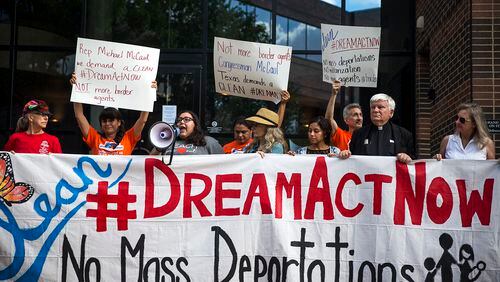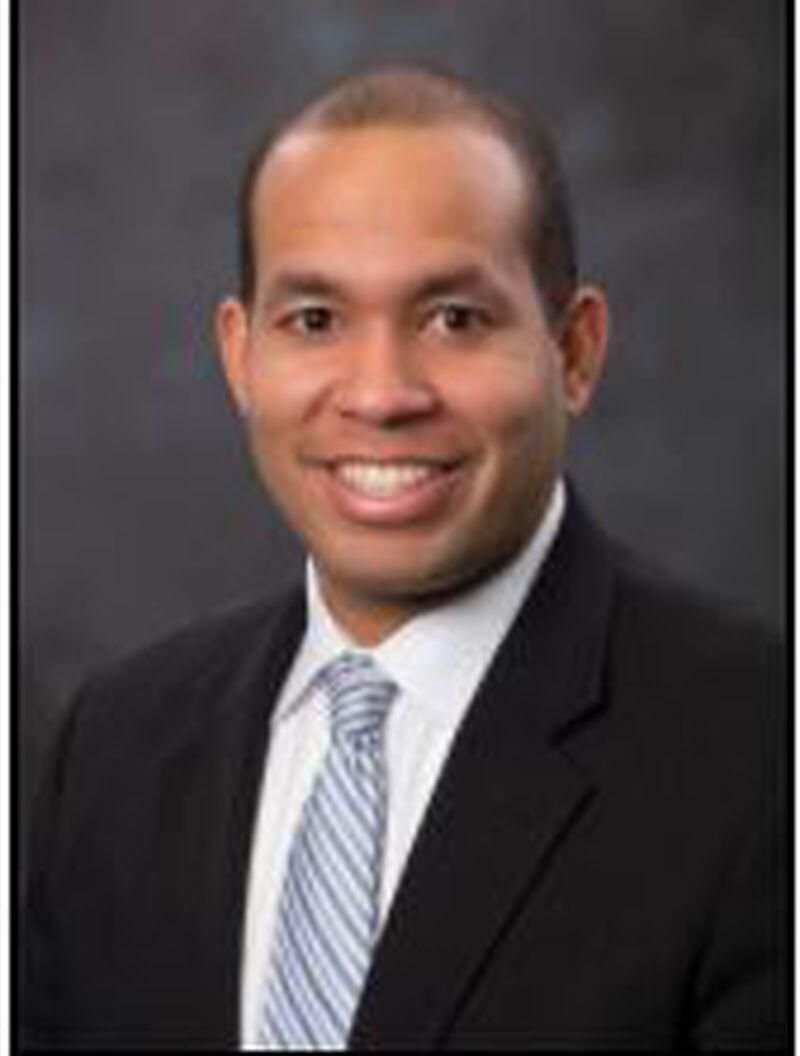Jason Esteves was elected to the Atlanta Board of Education in 2013. A former Teach for America teacher, Esteves taught middle school in the Houston Independent School District. He is now an attorney.
Esteves has served on the boards of KIPP South Fulton Academy, Georgia Appleseed's Young Professionals Council, and the Georgia Hispanic Bar Association. In this column, he urges Congressional action on behalf of young immigrants living and working in the United States through the Deferred Action for Childhood Arrivals or DACA program.
By Jason Esteves
About 10 years ago, I was a middle school social studies teacher at a public school in Houston, Texas. The majority of the students I taught were Latinos from low-income neighborhoods, so I worked hard to provide my students with opportunities that they normally would not have. One of those opportunities was to take 70 students to Washington, D.C., for an ultimate field trip that included monuments, museums, college tours, and a White House tour.
Planning the trip required many hours of work, and I worked with a colleague to ensure that we had thought through every scenario and potential issue to make the trip a perfect experience for my students. Unfortunately, on the night of the informational meeting a couple of weeks before the trip, we discovered that we completely missed an issue that impacted several of my students—they were Dreamers, undocumented students who were brought to the United States as young children. So, traveling, particularly through airports, put them at risk because of their immigration status.
Credit: Maureen Downey
Credit: Maureen Downey
Although I am Latino — a Puerto Rican — my status as a citizen of the United States has never been something that I’ve had to think about. But for Dreamers, missing out on opportunities because of their immigration status is common.
That experience has stuck with me for over a decade. Today, as a member of the Atlanta Public Schools Board of Education, I still think about my students from Texas as I work to break down barriers to success for students in Atlanta.
At Atlanta Public Schools, we work to get students ready for college and career, and we do that by giving them opportunities that they normally wouldn’t get given their circumstances.
For Dreamers, however, those opportunities are becoming increasingly limited because of the political climate in this country. Despite the fact that they are no different from you or me — they are willing to work hard to meet their life goals and contribute to society — their efforts are often in vain because of our broken immigration system.
Dreamers saw hope in 2012, when President Obama created the Deferred Action for Childhood Arrivals (DACA) program. They were finally able to legally leverage opportunities to work, attend colleges and universities, own a house, and drive motor vehicles.
Unfortunately, that hope started to dissipate on September 5, 2017, when Attorney General Jeff Sessions announced the DACA program would be rescinded on March 5, 2018. President Trump later announced that he would leave the fate of Dreamers in the hands of Congress, in hopes that Congress would pass bipartisan legislation.
The stakes are high. If Congress does nothing, more than 800,000 Dreamers, including 24,000 here in Georgia, will lose their ability to work, study, and legally contribute to our communities. And if that happens, we all lose.
Since DACA was implemented, Dreamers have become doctors, lawyers, and started businesses; pumping millions of dollars into our economy. More importantly for me, 20 percent of Dreamers work in education, where they provide students across the country the very opportunities in life that were often foreclosed to them.
If Congress fails to pass and implement bipartisan legislation by March 5, approximately 1,700 Dreamers will lose their jobs every single business day between March and November in 2018 — more than 300,000 in just eight months. We have invested millions of dollars in Dreamers’ K-12 education and professional development. So, it would be foolish to push them back into the shadows instead of encouraging them to continue to be contributing teachers, lawyers, doctors, and small business owners.
That is why I stand with our Dreamers in Georgia and across the country, and call on Congress to pass bipartisan legislation to support Dreamers as soon as possible. The support of the American people is there — according to a recent Fox News poll, 90 percent of Americans, including 79 percent of Republicans, want a permanent legislative solution for Dreamers. And December is the last best chance for Congress to pass legislation before the March 5, 2018, deadline.
Now is the time for our elected leadership in Washington to step up. Our country and our state cannot afford to waste this opportunity.
About the Author








